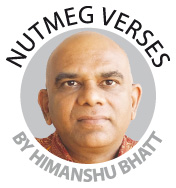WHILE Malaysians have their attention fixated on the Covid-19 pandemic, many have simply overlooked another crisis that is looming dangerously over the country’s northern region.
On April 28, the Penang Water Supply Corporation (PBAPP) warned that the effective capacities of six key dams in Penang and Kedah were very low due to abnormally low rainfalls since the second half of 2019.
It announced that the Penang government had approved a plan for cloud seeding operations over its own state as well as Kedah from late April to May.
According to PBAPP’s CEO Datuk Jaseni Maidinsa, a total of 3.95 million people in the two states need continuous good water supply.
If not for the unprecedented global emergency over the virus there would have been a lot more public alarm over the recent drought that hit this part of the peninsula.
By the end of April the effective capacities of Kedah’s three dams – Muda, Beris and Pedu – were low and plunging fast.
To understand how critical the scenario is, consider the fact that the Muda Dam’s water had decreased to a bare 5.4% of its total capacity from 31.9% on Jan 1.
In Penang, the Air Itam, Telok Bahang and Mengkuang dams were also badly affected.
Both Air Itam and Telok Bahang had their effective capacities halved over four months from Jan 1 to April 28, with the former having 33.3% and the latter just 20.4% of water left.
The recent spate of rain over the past 10 days (one wonders if the cloud seeding contributed to it) may bring some comfort.
However, the truth is that it will take time for the water to seep into the hilly forested grounds around the dams to fill them to any satisfaction.
The problem however does not end there. If indeed the recent rains were brought about by the could seeding it leaves us with the question of whether the showers would continue after the operation ends.
PBAPP has projected the effective capacities of Air Itam Dam to increase by 20%, Teluk Bahang by 15% and Mengkuang by 5% from the cloud seeding and an inter-monsoon rainfall in April and May.
Jaseni has pointed out that the additional capacities are required by June to ensure sufficiency for Penang – until the next inter-monsoon season in August.
Very importantly, PBAPP is also monitoring the situation at the three dams in Kedah, as well as the river levels of Sungai Muda.
The scenario is particularly worrying as the authorities are preparing to face the possibility of a drought in the future.
“It should be noted that the secondary objective of the cloud seeding operations is to increase the effective capacities of all the six key dams in Penang and Kedah by as much as possible in 2020, in preparation for the next dry season in early 2021,” Jaseni stressed.
Currently, 80% of Penang’s water source is derived from Sungai Muda, which flows from Kedah.
Protracted logging in Kedah, especially around the Ulu Muda forest, which is a vital catchment area, have led to concerns about future water quality and availability from the Sungai Muda.
According to Sahabat Alam Malaysia, the Ulu Muda Forest Reserve (UMFR), which covers a total land area of 106,418ha, is the largest water-catchment area in the northern region.
The UMFR and its surrounding forests are critical in meeting the water needs of an estimated population of 4.09 million people in Perlis, Kedah and Penang.
The raw water originating from Ulu Muda is also essential for double cropping in the rice fields of the three states, which include the nation’s rice bowl.
With that, both federal and state governments must step up the resolve to end to deforestation activities in these sensitive areas.
The onus is also very much on people across the region to practise strict and rigid water consumption.
The newfound discipline in hygiene and health brought into our lives by the Covid-19 virus shows that we can very well inculcate a similar discipline to help protect our water resources in the face of a looming crisis – if we put our minds to it.
Himanshu is a veteran journalist and theatre practitioner. Comments: letters@thesundaily.com













